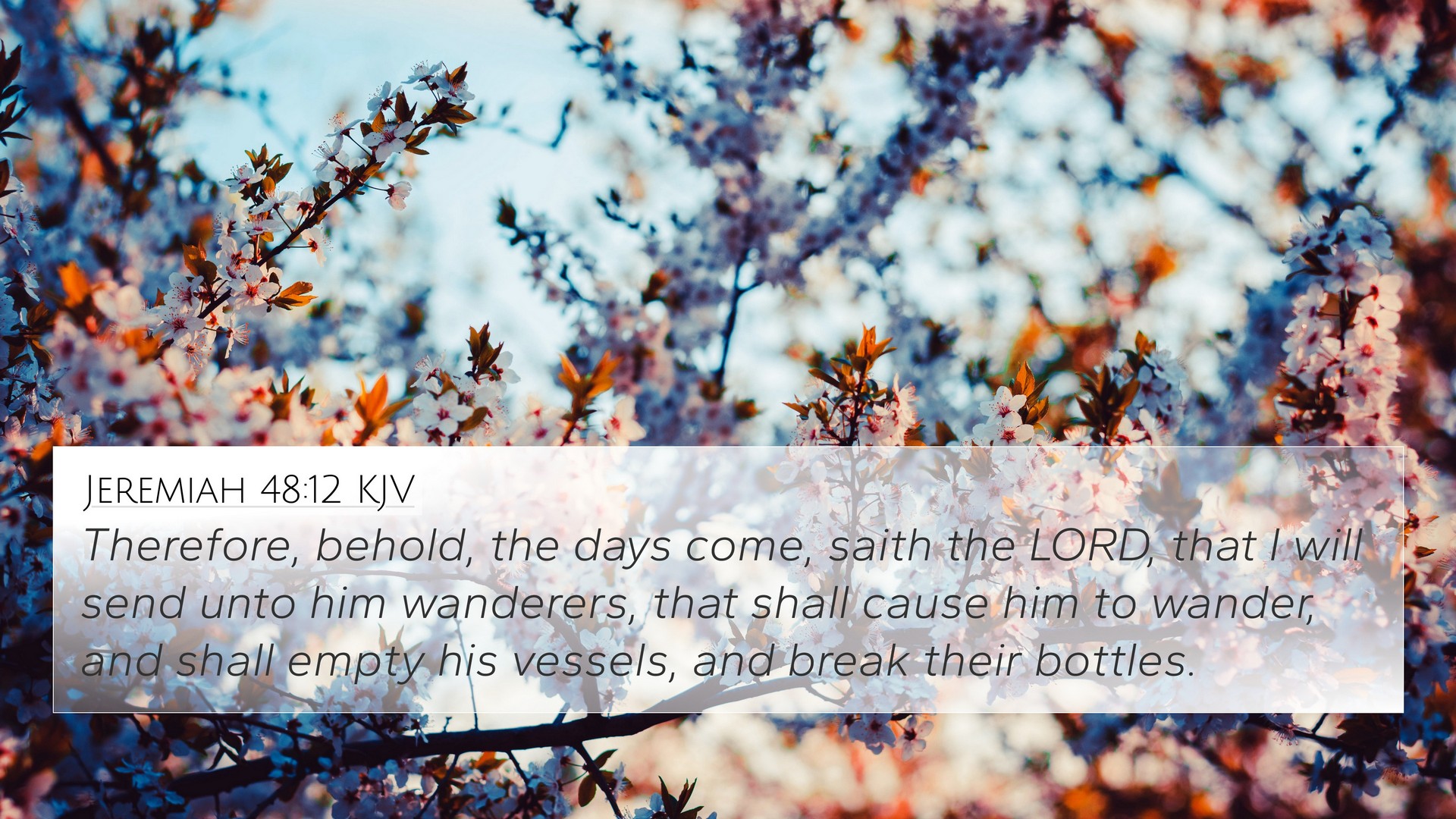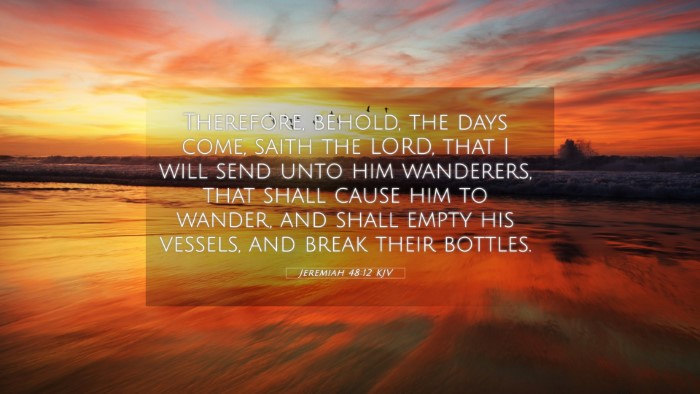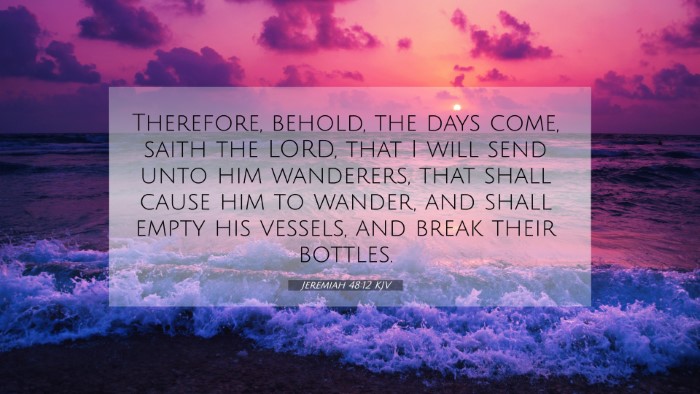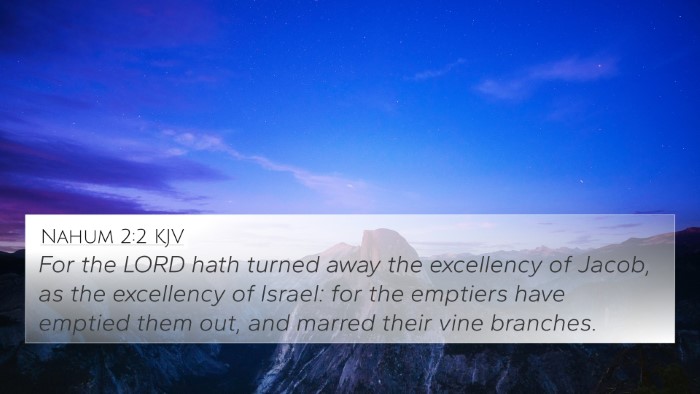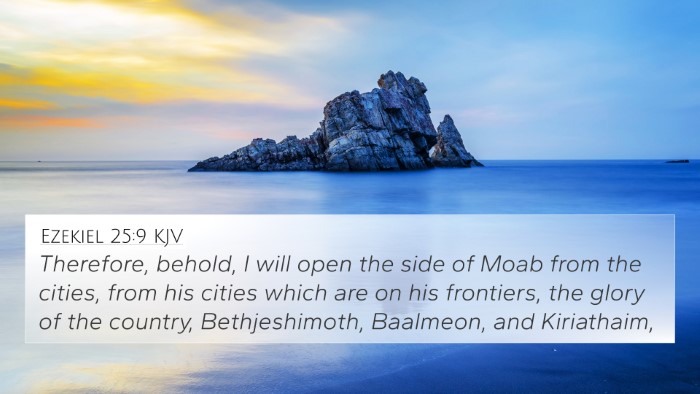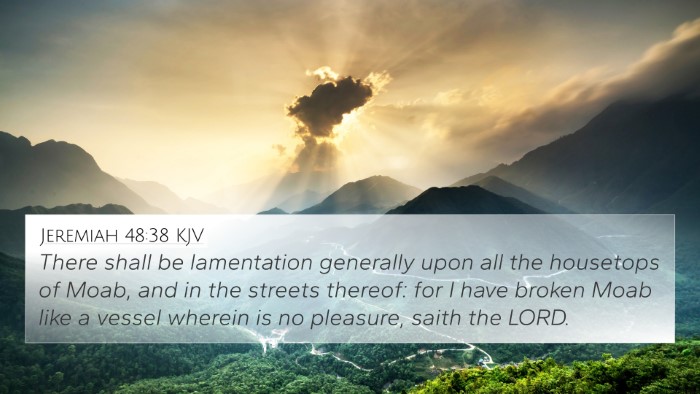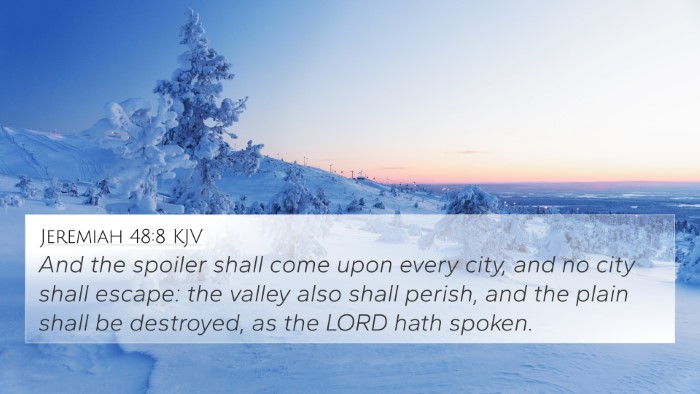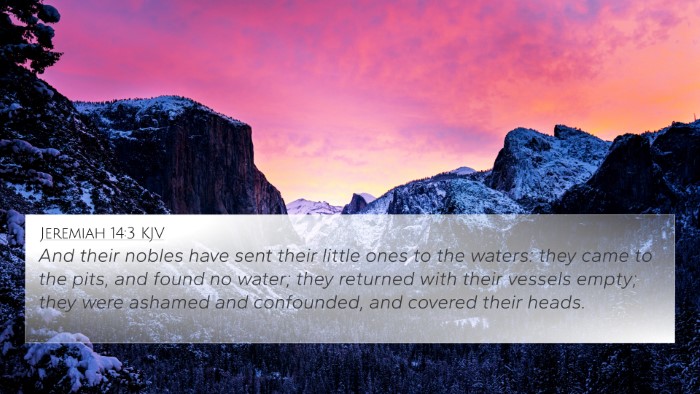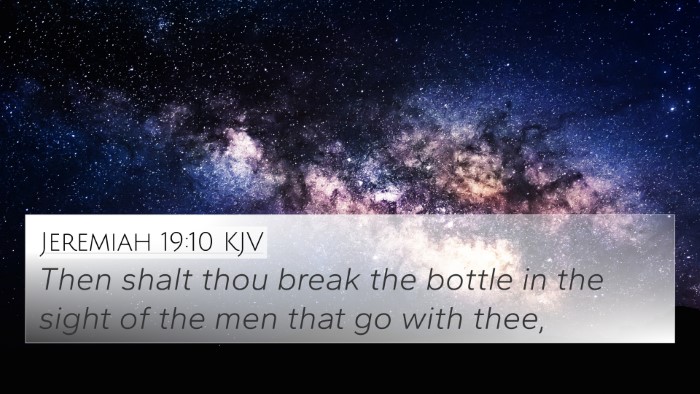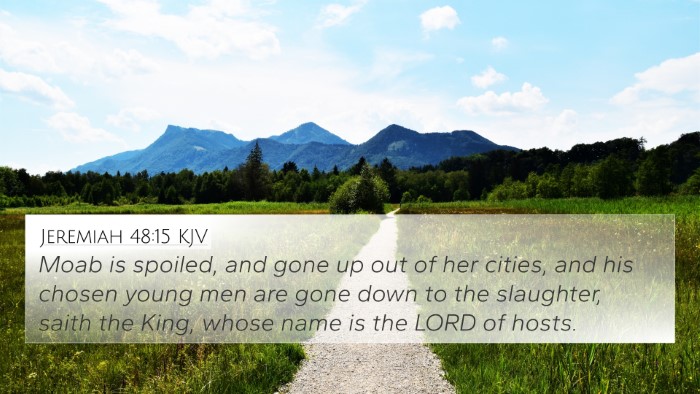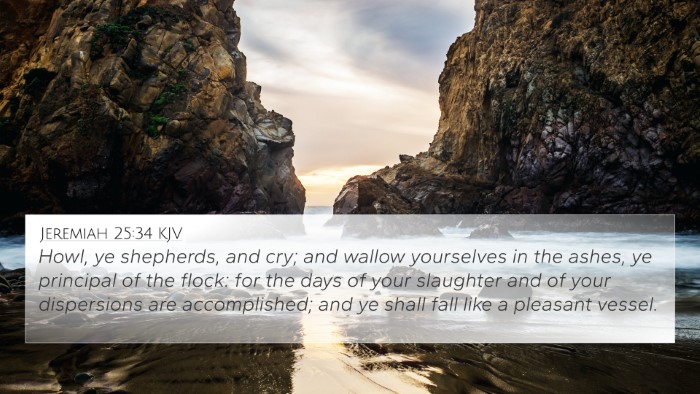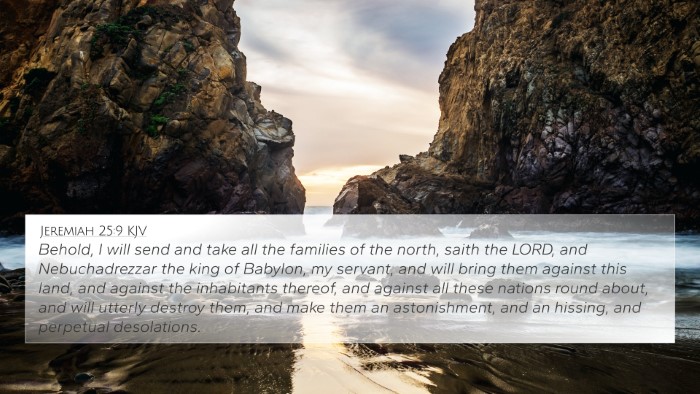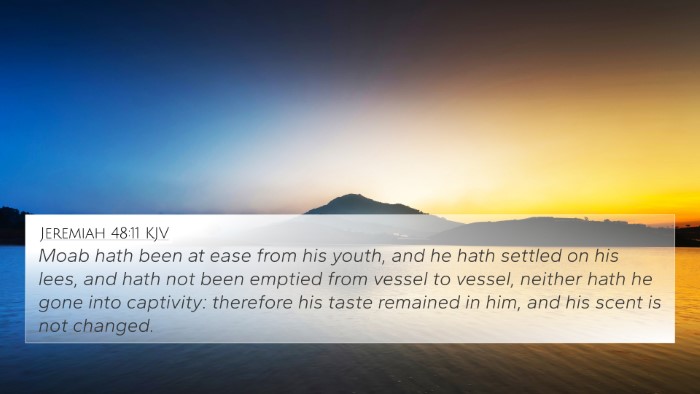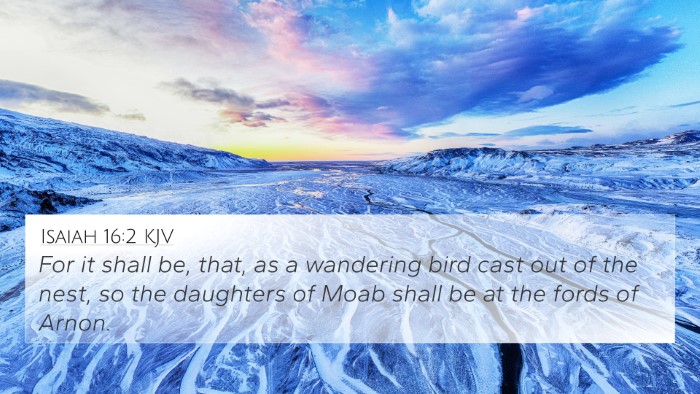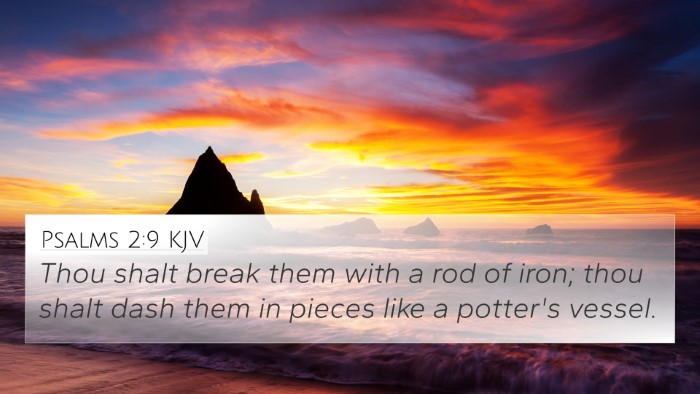Understanding Jeremiah 48:12
Jeremiah 48:12 states: "Therefore behold, the days come, saith the Lord, that I will send unto him wanderers, that shall cause him to wander, and shall empty his vessels, and break their bottles." This verse is rich in meaning and can be examined through the insights of various public domain commentaries.
Summary of Insights
This verse refers to the prophecy concerning Moab, indicating a time of desolation and judgment. Multiple commentaries highlight the themes of divine retribution, desolation, and the consequence of pride and idolatry.
Key Themes and Interpretations
-
Divine Judgment:
Matthew Henry notes that the wandering of the vessels symbolizes a loss of stability and security for Moab, marking God’s judgment on their arrogance and idolatry.
-
Invasion Reference:
Albert Barnes emphasizes that the "wanderers" mentioned in this verse represent invading forces that will bring destruction upon Moab, highlighting the inevitability of God’s judgment.
-
Symbolism of Bottles:
Adam Clarke interprets the "bottles" as a metaphor for the people's resources and hopes, which will be shattered in the coming crisis, illustrating the futility of their previous confidence.
Cross-References
Jeremiah 48:12 can be cross-referenced with several other Bible verses to deepen the understanding of its meanings:
- Isaiah 15:1-9: This passage details God's judgment on Moab, providing context to Jeremiah's prophecies.
- Jeremiah 25:17-20: Further illustrates the desolation of nations including Moab due to their sins.
- Ezekiel 25:8-11: A prophecy against Moab that echoes the judgment themes found in Jeremiah.
- Amos 2:1: Speaks of God's judgment on neighboring nations including Moab, reinforcing the idea of inevitable consequences for sin.
- Deuteronomy 2:9: Provides historical context about God's prohibition against Israelite conflict with Moab, which primes the narrative of judgment.
- Isaiah 16:6-7: Describes Moab's pride and eventual downfall which aligns with the themes of Jeremiah's prophecy.
- Micah 6:1-2: Calls for nations to hear God's judgment, similar to the tone in Jeremiah regarding Moab.
- Revelation 14:10: Futuristic judgment echoes the past judgments as a stiff warning against idolatry.
Thematic Connections
The themes present in Jeremiah 48:12 also connect to broader biblical narratives:
- Theological Themes: The concept of divine retribution is prevalent throughout both the Old and New Testaments.
- Historical Context: Moab as a nation often stands in contrast with Israel, representing pride and opposition to God's people.
- Restoration Themes: While this verse focuses on judgment, the broader context of scripture leads to themes of restoration and hope for nations turning back to God.
Using Cross-References Effectively
For deepening the understanding of scripture and exploring connections between Bible verses, consider the following tools and methods:
- Utilize a Bible concordance to find themes and words related to Moab's judgment.
- Employ a cross-reference guide for exploring inter-Biblical dialogues and seeing how themes echo across books.
- Study different Bible verses that relate to each other for comparative analysis.
- Implement cross-referencing Bible study methods for thematic studies over context, narratives, and doctrinal issues.
Conclusion
Jeremiah 48:12 serves as a stern reminder of God's justice and the consequences of sin. By studying this verse alongside its cross-references, one can appreciate the intricate relationships between various biblical themes, the inevitable judgment of God, and the hope found in repentance and restoration.
